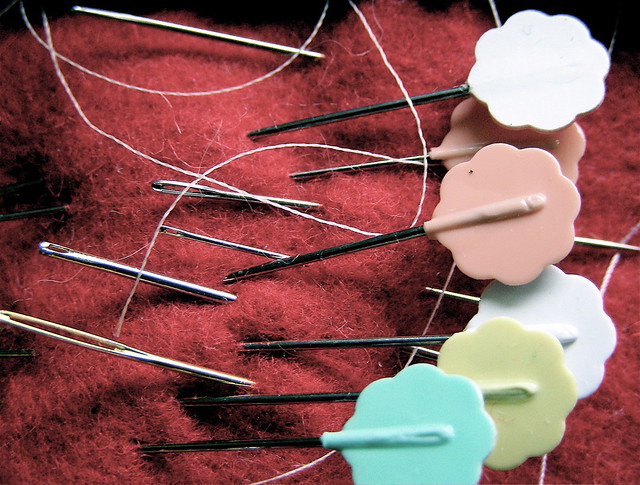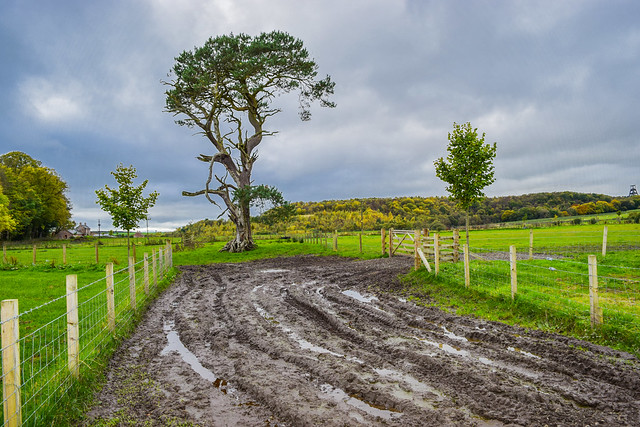Words for bitter, sour and related things in Celtic languages.
Words marked with a * are reconstructions.
| Proto-Celtic | *swerwos = bitter |
|---|---|
| Old Irish (Goídelc) | serb [sʲerv] = bitter, bitterness serbae = bitterness |
| Middle Irish (Gaoidhealg) | serb = bitter, hurtful, grievous, disagreeable, harsh, discordant serbae, seirbe = bitterness, asperity |
| Irish (Gaeilge) | searbh [ˈʃaɾˠəvˠ / ˈʃarˠu(ː)] = bitter, sour, acid searbhaigh = to sour, embitter, become bitter searbhán = bitter person, bitter herb, bitters searbhánta = bitter, acrid searbhas = bitterness, sourness, acidity searbhasach = bitter, acrimonious searbhóg = bitter person, bitter woman, bitter drink searbhú = embitterment |
| Scottish Gaelic (Gàidhlig) | searbh [ʃɛrɛv] = bitter, sour, tart, disagreeable, acidic searbh-chainnt = sarcasm searbh-ghlòr = cacophony searbh-nhilis = bitter-sweet duine searbh = disagreeable person fion searbh geal = dry white wine leann searbh = bitter (ale) ’s searbh an fhirinn = the truth hurts |
| Manx (Gaelg) | sharroo = acid, acrid, acrimonious, bitter, cutting, embittered, sardonic, sour, tart, unpalatable, vitriolic sharrooaghey = to embitter sharrooane = bitters sharrooid = bitterness lhune sharroo = bitter (ale/beer) |
| Proto-Brythonic | *hwerw = bitter |
| Middle Welsh (Kymraec) | chuerv, chuerw, chwerw, chuero, chỽerw = bitter, acrid, painful, harsh chwerwy, cwherwa = to become bitter, be displeased chwerwder, chweruder = bitterness, sourness, acerbity chwerwed, chỽerỽed = bitterness, sourness, acerbity, sharpness, tartness |
| Welsh (Cymraeg) | chwerw [ˈχwɛru/ˈχweːru] = bitter, acrid, painful, harsh, rough, severe, sharp, surly, hurtful, angry, irate, spiteful, cross, cruel, sorrowful chwerwaf, chwerwi = to become bitter, be displeased chwerwaidd = bitter, sharp chwerwder = bitterness, sourness, acerbity chwerwedd = bitterness, sourness, acerbity, sharpness, tartness |
| Middle Cornish (Cernewec) | chuero, wherow = bitter, cruel, hardhearted |
| Cornish (Kernewek) | hwerow = bitter, harsh, sharp hwerowder = acrimony |
| Old Breton (Brethonoc) | hueru = bitter |
| Middle Breton (Brezonec) | hueru, fero, huerhue = bitter hueruentez = bitterness |
| Breton (Brezhoneg) | c’hwerv [χwɛʁw] = bitter c’hwervaat = to make or become bitter c’hwervded, c’hwervder, c’hwerventez, c’hwervoni = bitterness |
Etymology from Proto-Indo-European *swer- (to ache, to fester, wound, injury). Words from the same root include sword in English, chwarren (gland, knot in wood, boil, ulcer) in Welsh, zweren (to swear, pledge, declare under oath) in Dutch, and schwären (to fester, hurt, suppurate) in German [source].
| Proto-Celtic | *gʷereti, gʷorti- = bitter |
|---|---|
| Old Irish (Goídelc) | goirt [ɡor͈ʲtʲ] = bitter, salty |
| Middle Irish (Gaoidhealg) | goirt = hungry, starved, bitter, sour, salt, sharp, keen |
| Irish (Gaeilge) | goirt [ɡʌɾˠtʲ / ɡɔɾˠtʲ] = salt, saline, salted, bitter goirte = saltiness, salinity, brackishness, bitterness goirteamas = saltiness, bitterness, salt food goirtigh = to salt, pickle |
| Scottish Gaelic (Gàidhlig) | goirt [gɔr̪ˠʃdʲ] = sore, painful, sour, salted goirteas [gɔr̪ˠʃdʲəs] = pain, ache, painfulness goirtear [gɔr̪ˠʃdʲər] = miser, mean/stingy person goirte [gɔr̪ˠʃdʲə] = soreness, painfulness, sourness, acerbity, saltiness goirteachadh [gɔr̪ˠʃdʲəxəɣ] = hurting, afflicting, acidifying, making sour, leavening |
| Manx (Gaelg) | gort = acid, bitter, brackish, rank, vinegarish, vinegary, sour, hurt, poignant, acrid, acrimony gortaghey = hurt, hurting, maim, pain gortagh = beggarly, frugal, grudging, hurt, meagre, miser |
Etymology from Proto-Indo-European *gʷorti-, from *gʷʰer- (warm, hot). Words from the same root include barmy, furnace, gore, thermal and warm in English, and garstig (rude, nasty, beastly, foul) in German [source].
Sources: Wiktionary, Am Faclair Beag, Online Manx Dictionary, Teanglann.ie, eDIL – Electronic Dictionary of the Irish Language, In Dúil Bélrai English – Old Irish glossary, Geiriadur Prifysgol Cymru, Gerlyver Kernewek, Dictionaire Favereau, TermOfis, English – ProtoCeltic WordList (PDF), Etymological Dictionary Of Proto Celtic












